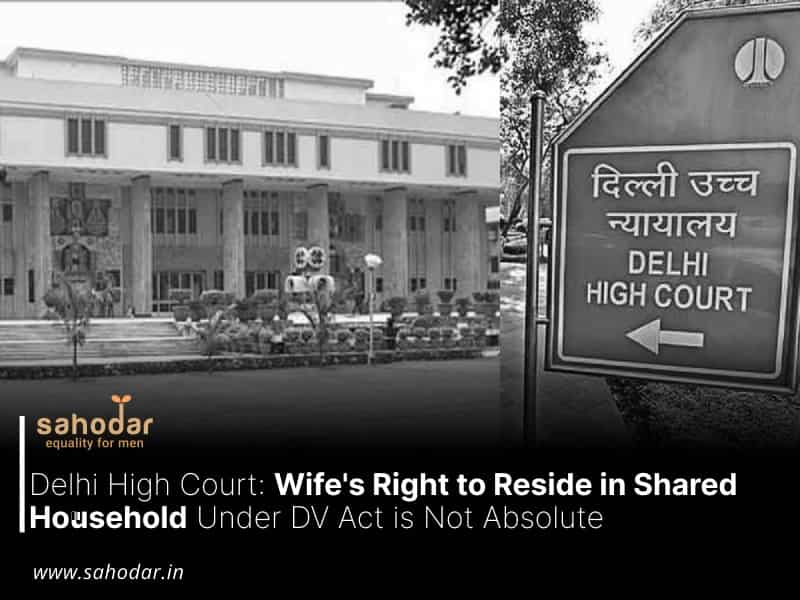The Delhi High Court ruled on Monday that a wife’s right to reside in the shared household under the Protection of Women from Domestic Violence Act, 2005 (DV Act), is not absolute, particularly if she is gainfully employed.
Justice Neena Bansal Krishna, presiding over a single bench, made this observation while dismissing an appeal by a woman seeking to remain in her marital home despite being employed.
The case concerned a wife who filed a domestic violence complaint after marital discord surfaced within a year of her marriage. Although she moved into her husband’s family home after the wedding, she continued living there alone after her husband and in-laws relocated due to strained relations. Meanwhile, the husband and his family filed a civil suit for her eviction from the property.
The wife sought protection under Section 19 of the DV Act, which permits women to claim the right to reside in the shared household, regardless of ownership, as long as they have lived there after marriage. However, after it was revealed that she was employed at Accenture Solutions Private Limited and held an MBA degree, the lower courts determined that she was not in a helpless situation warranting her continued residence in the shared household.
Initially, the magistrate issued an order restraining the husband and in-laws from evicting the wife and awarded her interim maintenance of Rs. 5,000 per month. However, upon learning that the wife had secured employment, the magistrate reversed the eviction order, concluding that her financial independence disqualified her from claiming an absolute right to reside in the household.
The wife appealed this decision to a Sessions court, contending that her right to reside in the shared household under the DV Act could not be revoked. However, the Sessions Court upheld the magistrate’s ruling, leading the woman to escalate the case to the Delhi High Court.
In its order on October 21, the High Court dismissed the wife’s appeal, indicating that her employment status undermined her claim to an absolute right to reside in the shared household.
The Court remarked that while Section 19 of the DV Act acknowledges a daughter-in-law’s right to reside in the shared household, this right is not unconditional and is subject to legal stipulations, including eviction through due process and the provision of alternative accommodation or rent.
“No absolute right of residence can be claimed by the petitioner. She herself is an educated woman who has done her MBA and is employed. It is not a case where she is helpless or where any attempt is being made to leave her without shelter,” the Court observed.
The Court further stressed that the petitioner’s elderly father-in-law, the homeowner, should not be deprived of his residence at his advanced age. The magistrate had directed that an alternative flat in the same colony be provided to the wife on rent, ensuring that she would not be left homeless.
The Court concluded that there were no errors in the decisions of the lower courts and dismissed the wife’s appeal, reiterating that her right to residence under the DV Act must be weighed against other factors, including the rights of the property owner and her own financial independence.
“There is no infirmity in the Order of the learned M.M which has been rightly upheld by the learned District & Sessions Judge. The present petition has no merit which is hereby dismissed along with application, if any,” the Court ordered.

